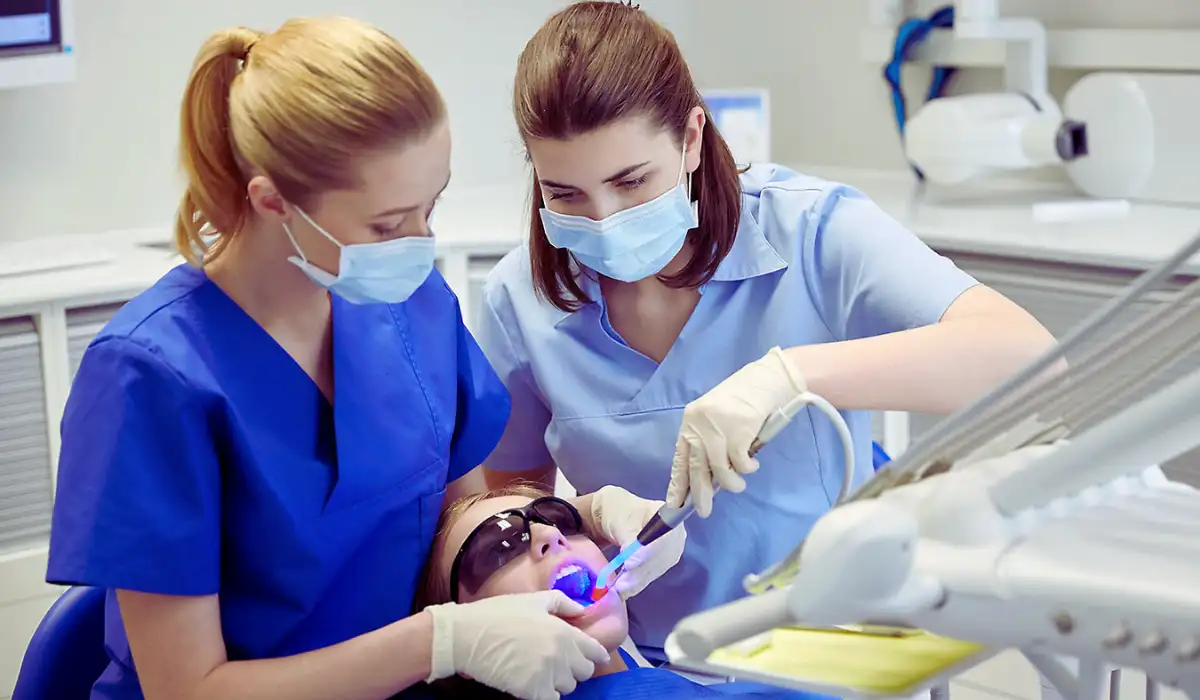The dental hygienist profession is a rewarding career choice in modern times. Embarking on a dental hygienist career can enhance knowledge about oral health and benefit the well-being of communities.
This article is a comprehensive guide that outlines the step-by-step process to begin a career in dental hygiene. You will get a quick overview of the entry-level education, skills, opportunities, and responsibilities of the dental hygienist profession.
What Are The Processes Involved In Starting A Career In Dental Hygiene?

✅ Education
Any career requires an entry-level education When it comes to becoming a dental hygienist, an individual should have the necessary education and training. Most dental hygiene programs require a high school diploma or equivalent to get admission.
A dental hygienist must complete an accredited program. Prospective students can enroll in accredited dental hygiene programs at community colleges, technical schools, or universities. A student will get an associate degree or bachelor’s degree in dental hygiene as a result of these programs.
✅ Prerequisites
An aspiring student must complete high school courses in subjects such as biology, chemistry, anatomy, health, physiology, and psychology. Admission requirements and course length may vary depending on the program and the type of institution you are enrolled in.
A prospective student should have problem-solving skills, good communication skills, the ability to focus, manual dexterity, and interpersonal skills. Some programs require a specific GPA, which may vary depending on the institution.
✅ Clinical Training
The program involves classroom instructions and hands-on training. A dental hygiene student learns about oral anatomy, dental hygiene techniques, patient assessment, dental radiography, periodontal therapy, and preventive oral care.
Clinical training is also involved in the program. Hands-on training provides students with real-life experience in treating patients under the supervision of licensed professionals. The practical sessions provide students with the opportunity to develop their skills, confidence, and knowledge to embark on a prospective career.
✅ Licensure and Certification
After completion of the course, a graduate student must obtain licensure to practice as a dental hygiene professional. According to the American Dental Association, a dental hygienist should pass the National Board Dental Hygiene Examination.
The requirements will vary from state to state. A graduate should pass the clinical examination as well. According to some states, additional examination and further certification processes are needed to attain licensure.
✅ Professional Development
Since dental hygiene is an ever-evolving field, a professional must learn about the new advancements in the field. As time progresses, there will be an introduction of new technologies, research, and advanced methods.
A dental hygienist should pursue continuing education and professional development opportunities to gain knowledge about new trends and practices. Attending seminars and pursuing further degree courses or certification programs will help enhance professional development.
✅ Career Opportunities and Growth
After completing their education, a dental hygienist can pursue diverse career paths in various places, such as private dental offices, community health clinics, hospitals, schools, hospitals, and public health agencies. The profession is achieving job growth at a faster rate compared to other jobs.
A dental hygienist plays a vital role in dental care, oral health education, patient assessment, and treatment of dental conditions. If you have enough experience and training, you can also work as a dental hygiene educator, researcher, or dental practice manager.
✅ Responsibilities
A dental hygienist should assess the condition of the patient and choose the perfect treatment plan. They should assist a dentist and work to educate patients about their conditions and ways to manage good oral wellness. The primary responsibilities of a dental hygienist include the following:
- Help the patients by cleaning and removing plaques, tartars, and discolorations.
- Take dental X-rays to diagnose oral health issues.
- Assists dentists and conducts preliminary examination of the patients.
- Administer local anesthetic to patients before procedures.
- Proper documentation about patient’s treatments.
- Application of fluoride and sealants to patient’s teeth.
- Proper assessment of patient’s oral health.
- Educating patients on the importance of maintaining good oral hygiene.
- Communicating with the dentist about the findings and the patient’s oral issues.
- Using various ultrasonic tools, power, and skills to perform the duties effectively.
Overall, becoming a dental hygienist is a fulfilling career, and a dental hygienist can help educate the community about dental hygiene and wellness. If you are passionate about choosing a career in dental care, becoming a dental hygiene professional will be a great option.
Conclusion
Choosing a career in dental hygiene offers a wide range of opportunities. It will provide a person with the opportunity to promote oral health. A dental hygienist should educate the patient on the importance of oral hygiene and should be able to encourage the patient to make wise oral health decisions. One can become a dental hygienist by getting proper education and training.
A person must have preliminary knowledge and the required education to choose a career in dental hygiene. Completing education, licensure, personal development, and career advancement can help a dental hygienist lead a successful career.
Also Read: How To Fix Tooth Decay? Effective Solutions And Prevention Tips!
Reference
- Oh H.Y., Kim C.H., Park Y.H., Lim S.H., Kim J. The comparison between periodontal attitude and oral health promotion behavior by the dental hygiene process applies. J. Korean Soc. Dent. Hyg. 2012;12:861–870. doi: 10.13065/jksdh.2012.12.5.861.
http://koreascience.or.kr/article/JAKO201216161601565.page





